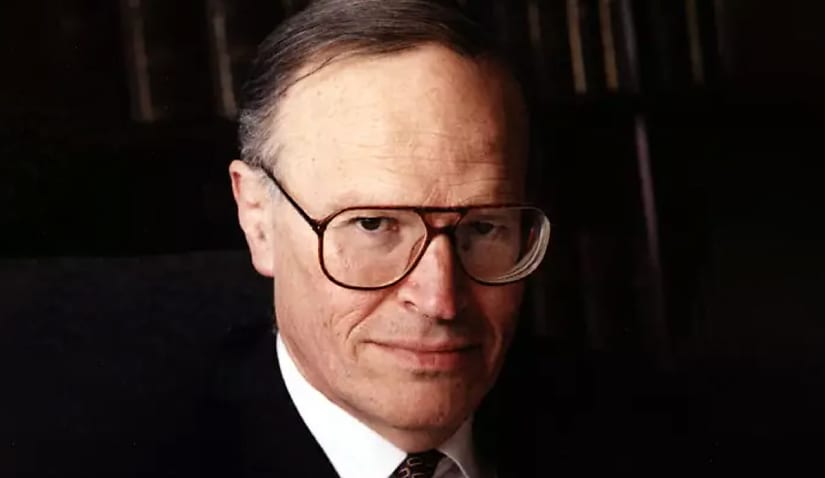By helping to rehabilitate disgraced former judge Dyson Heydon, some of Australia’s most senior judicial members have stripped the profession’s commitment to change of any real meaning and contributed to diminishing trust in the administration of justice.

In delivering a public and sincere apology to the six women sexually harassed by former High Court justice Dyson Heydon, then-chief justice Susan Kiefel said she was “ashamed this could have happened” and committed to implementing swift policy changes.
In addition to its findings, the independent investigation into Heydon’s misconduct recommended changes to the role of associates and provide them with a person who could regularly check in and provide support. Heydon has continued to deny the allegations.
In the immediate aftermath, key legal bodies like the Law Council of Australia and Australian Women Lawyers urgently called for reforms around sexual harassment reporting and training. Ripples of change were felt across the entire legal profession and – for a time – it was as if it were united in its rejection of Heydon’s appalling behaviour.
Then the tides began to turn. In March, eminent legal figures like Justice Michael Lee attended a book launch for Heydon’s new contract law tome that featured a glowing foreword by former colleague Michael Kirby. The NSW Law Society even advertised the book in a members-only email bulletin, albeit accidentally.
But that’s not nearly the end of it: Heydon delivered a 30-minute speech at the Samuel Griffith Society conference in Perth; his presence at a welcome ceremony for a new Federal Court judge was acknowledged by the bench; and The Australian journalist Janet Albrechtsen sought to minimise the allegations against him.
In response to the latter, author and legal scholar Rachael Patterson Collins wrote an opinion piece for The Sydney Morning Herald about Heydon’s harassment of her. In it, she said that while Heydon’s academic work is intelligent and meticulous, his conduct was indefensible.
“Failing to censure his actions sends the message that sexual harassment will be tolerated – so long as the offender is connected or ideologically convenient. As such, it invites future abuse. If Heydon is lauded even after the findings against him, why should any judge with a wandering hand fear accountability?” Collins wrote.
In a powerful and scathing plenary speech delivered at the 2025 Australian Legal Convention, barrister Rachel Doyle SC said these incidents appeared to indicate that underneath the 2020 public apology and subsequent important changes in policy was a “silent sunset clause on caring about sexual harassment”.
“Over the last few years, some judges and barristers have been engaged in a program of very public rehabilitation of Heydon, who denies any allegations to this day,” Doyle said.
Referring specifically to the acknowledgment of Heydon at the welcome ceremony, Doyle said the court could not dodge it by describing it as “nothing more than the attendance by a private citizen in a ceremony conducted in an open courtroom”.
“That description omits something. It omits the fact that Heydon is welcome to a Commonwealth law courts building, which is a workplace of female associates to Federal and High Court judges.”
As for the contract law tome, Doyle said Heydon was entitled to publish it, just as judges were entitled to buy it, but those who attended the public book launch and others of its kind did so as representatives of the court from which they sit.
The convention brought together 270 of the legal profession’s most distinguished members, including chief justices from Australia’s highest courts. In front of this audience and many more watching through the live stream, Doyle said their rehabilitation of Heydon could only contribute to the diminishing trust in the courts.
“There is a great disconnect now between the nice press releases and the new training sessions, which have been rolled out, and what some judges are actually doing. This disconnect undermines and distracts among the very good reasons that our courts are worthy of trust, including the deep commitment of all Australian judges to independence, intellectual rigour and ensuing fair hearings,” she said.
Doyle’s message was loud and clear: what the judges in the room say and do will be seen as a reflection of the court they sit on and its values. They cannot sit on a bench that has condemned sexual harassment, at the same time, they sweep the truth under the rug.
“Integrity is the most important aspect of legitimacy in our courts … When what you think and say and do are in alignment, you are experienced and authentic and trustworthy. But when there’s a gap between what the institution says it stands for and what it actually does, distrust will seep through those cracks,” Doyle said.
